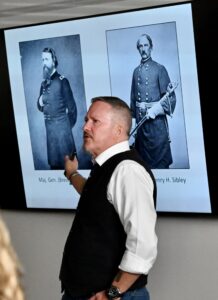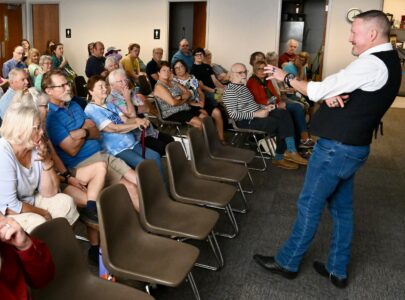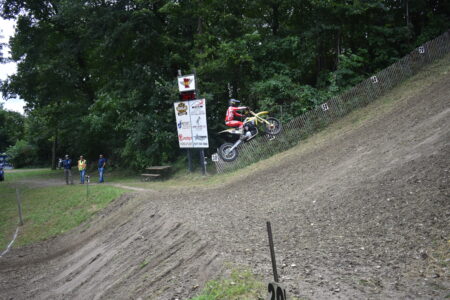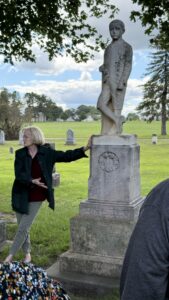Dakota War Trials re-imagined
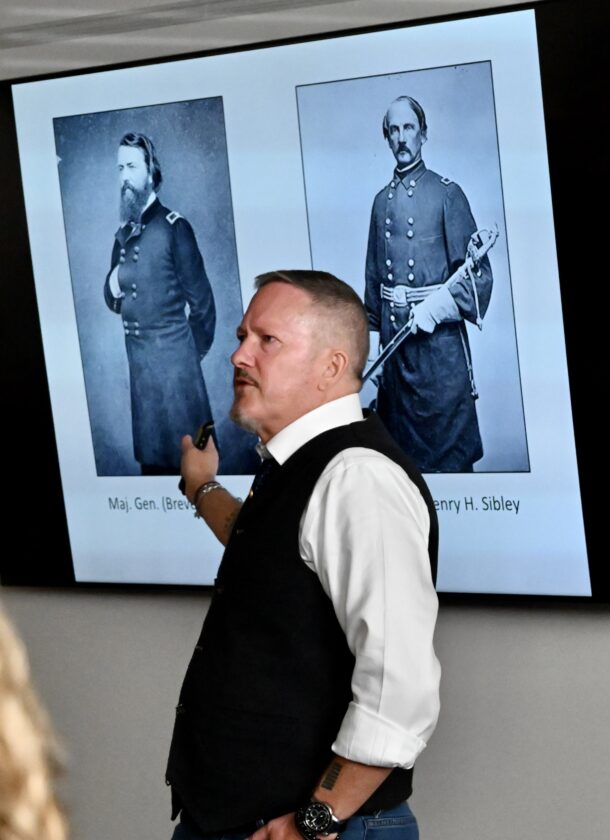
Tacoma Washington history teacher Dr. John Haymond provides insight to the military tribunals that followed in the wake of the U.S. Dakota War. Haymond’s presentation was part of commeration week for the U.S. – Dakota War which began in 1866.
NEW ULM — As part of history week, the New Ulm Library partnered with the Brown County Historical Society to bring award-winning historian and author John Haymond to share his unique perspective on the military tribunal that features so prominently in the local Minnesota psyche.
Dr. Haymond teaches history in Tacoma, Washington and specializes in military law, conflict history and social justice. While much has been written about the trials of Dakota warriors, this author is uniquely qualified to examine the events leading up to the U.S. Dakota War and the immediate aftermath from a military perspective as he served in the U.S. Army for 21 years before pursuing an academic career.
What started as a research project in Scotland while in graduate school ended up being a passion project aided by the Minnesota State Historical Society and fellow historians, including John Isch, Rhonda Gilman & Walt Bachman.
“The Infamous Dakota War Trials of 1862, Revenge, Military Law and the Judgement of History” is Haymond’s first published Book. “This book began as a narrow research project that I expected to finish quickly and then move on to other things- I had no expectation that it would develop into anything else.”
Fortunately for the audience at Brown County Historical Society’s Lunch and a Bite series, Dr. Haymond was invited to New Ulm by librarian LeRoy Harris who was awarded a grant funded by the Legacy Arts Minnesota Legacy Amendment.
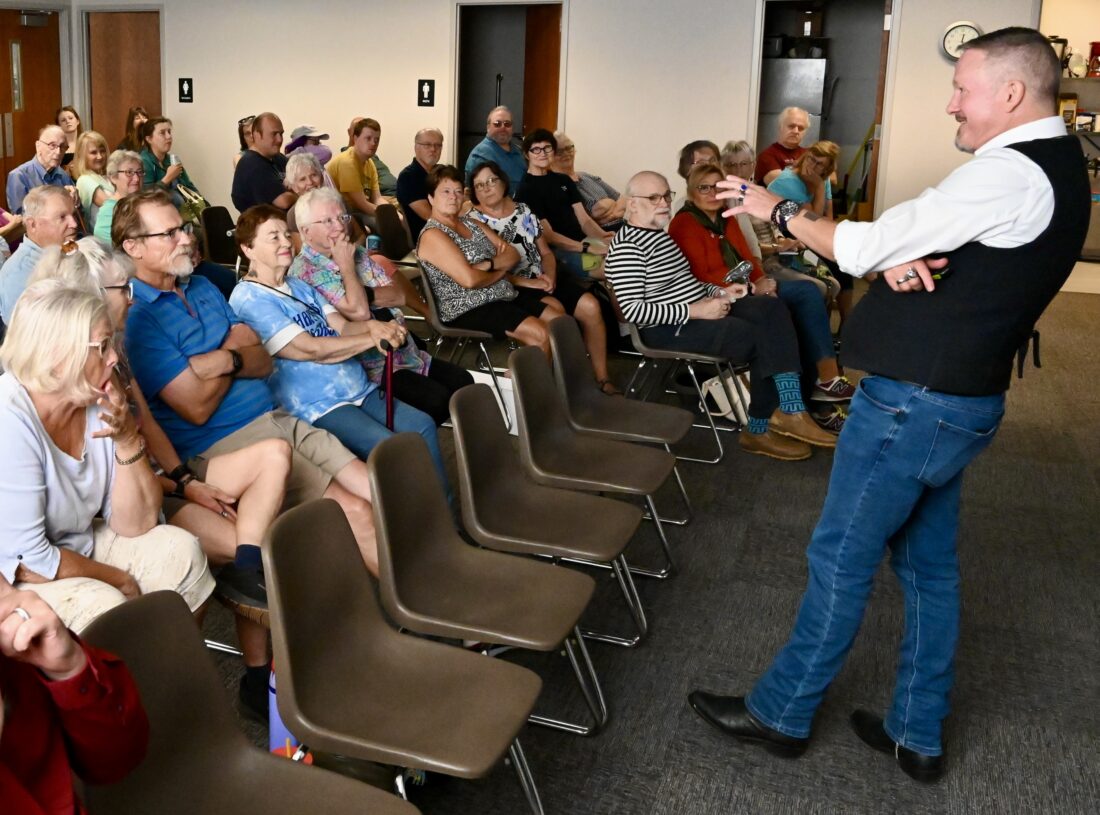
Dr. John Haymond speaks on the U.S. Dakota War military tribunals during a special Lunch and a Bite of History presentation held Wednesday in the Brown County Historical Society Annex.
The speaker captivated the audience with stories of his experiences and shared research documents including handwritten letters from Henry Sibley and Major General John Pope, historical photographs and various documents supporting his thesis about the legality of the trials.
“Murder and rape are not war crimes, but civilian crimes,” said Haymond and therefore should not be adjudicated in a military court. He also brought up controversial questions such as whether there was a “death march” or concentration camp at Fort Snelling and introduced the concept of unlawful command. Dr. Haymond’s thought provoking questioning brought out several responses from members of the history book club.
These topics have a specific resonance of residents due to New Ulm’s place in these historical events.
“We are judging what was experienced by our current understanding,” suggested Haymond and constructs such as prisoners of war had not yet been developed. “Punitive massacre” was the history of the time, and the Geneva Convention came about only many decades later. Likewise, the idea of a concentration camp in our current psyche is inextricably connected to the Nazi’s in Germany and what happened in Minnesota in 1862 must be considered in its historical context including the diseases that were rampant at the time killing many people, native and non-native.”
Dr. Haymond had his opinions and beliefs based on his extensive research and by his military experience, he sighted various other scholarly works and suggested reading those authors to get a full picture of what occurred at that point in history, even while disagreeing with their theories. His approach to questioning historical events in a new light gave the audience much to ponder.
- Tacoma Washington history teacher Dr. John Haymond provides insight to the military tribunals that followed in the wake of the U.S. Dakota War. Haymond’s presentation was part of commeration week for the U.S. – Dakota War which began in 1866.
- Dr. John Haymond speaks on the U.S. Dakota War military tribunals during a special Lunch and a Bite of History presentation held Wednesday in the Brown County Historical Society Annex.

